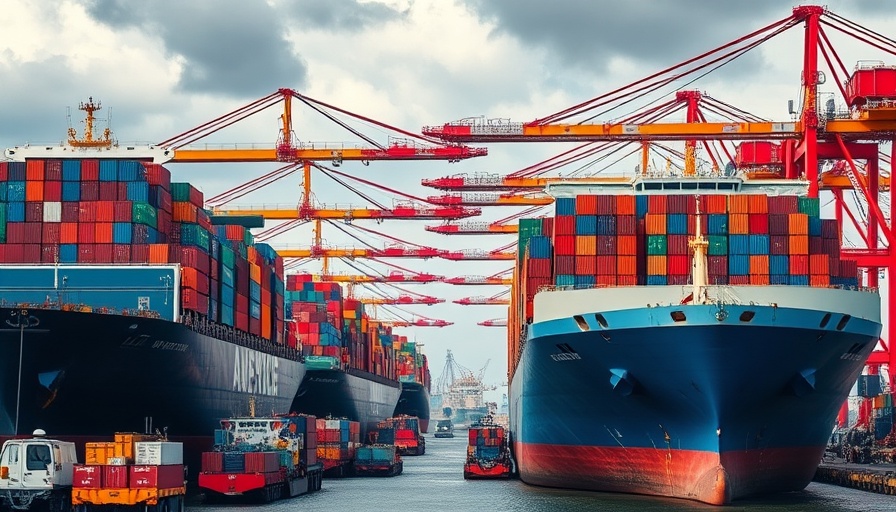
Understanding Flags of Convenience in Global Shipping
Shipping companies often register vessels under flags of convenience (FOC) to exploit loopholes in maritime law, reducing costs while evading strict regulations that safeguard crew welfare and environmental standards. These flags allow owners to operate under jurisdictions with minimal oversight, ultimately leading to harsh working conditions for seafarers.
The Abuse Behind Anonymity and Lack of Oversight
The anonymity provided by FOC often exacerbates the abuse of seafarers’ rights. When owners can hide behind shell companies, accountability becomes a casualty. Countries that host these registries frequently lack the capacity to enforce standards, leading to significant lapses that endanger workers' safety and freedom. The International Transport Workers’ Federation (ITF) highlights that ships registered under these flags are significantly linked to incidents of wage theft, abandonment, and other abuses.
Is There a Solution? The Role of International Awareness
Raising awareness about the abuses associated with flags of convenience is essential for driving change. Advocacy and regulatory clarity could push nations to close loopholes and enforce stricter standards for vessels operating under their flags. Shifts in public consciousness towards ethical consumption, such as opting for sustainably sourced and ethically produced goods, could also amplify pressure on shipping practices.
Legal Frameworks and Challenges in Maritime Governance
Under the United Nations Convention on the Law of the Sea (UNCLOS), flag states are responsible for ensuring that vessels adhere to safety and labor regulations. However, many FOC nations lack the necessary infrastructure to enforce these laws effectively, amassing notable gaps in accountability.
Impact on Seafarers: A Dire Reality
Seafarers on FOC vessels often endure dire working conditions including low wages, excessive working hours, and subpar living conditions. Such ships are commonly reported for abandoning crews without pay—a practice that has notably risen in recent years. The impact of these abuses on the mental and physical health of seafarers can be devastating.
Future Trends: A Call for Ethical Practices in Shipping
As consumers increasingly lean towards environmentally friendly products and ethical business practices, there is potential for significant change in the shipping industry. Public demand for transparency and responsible sourcing is growing, compelling companies to adopt sustainable practices. This shift presents an opportunity to reevaluate the norms surrounding flags of convenience and advocate for reforms that prioritize human rights at sea.
Community Engagement and Advocacy: How You Can Help
By supporting organizations that advocate for seafarers' rights and calling for regulatory reforms, you can contribute to a more just shipping industry. Engaging in eco-friendly initiatives at the community level—such as promoting circular economies and reducing your own carbon footprint—can inspire broader changes in consumer cultures and shipping practices.
In conclusion, the issues surrounding flags of convenience in shipping extend far beyond the immediate economic implications. They are critical to understanding a culture of exploitation and the urgent need for ethical standards in international trade. As advocacy efforts intensify and awareness spreads, the hope remains that our oceans will become safer for those who navigate them—ensuring dignity and respect for all seafarers.
 Add Row
Add Row  Add
Add 



Write A Comment